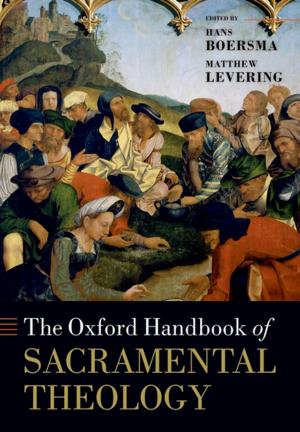A Dictionary of Journalism
Nonfiction, Reference & Language, Dictionaries, Fiction & Literature, Anthologies, Language Arts| Author: | Tony Harcup | ISBN: | 9780191044601 |
| Publisher: | OUP Oxford | Publication: | May 8, 2014 |
| Imprint: | OUP Oxford | Language: | English |
| Author: | Tony Harcup |
| ISBN: | 9780191044601 |
| Publisher: | OUP Oxford |
| Publication: | May 8, 2014 |
| Imprint: | OUP Oxford |
| Language: | English |
A Dictionary of Journalism is an accessible and authoritative quick reference dictionary. It covers over 1,400 wide-ranging entries on the terms that are likely to be encountered by students of the subject, and aims to offer a broad, accessible point of reference on an ever-topical and constantly-changing field that affects everyone's knowledge and perception of the world. Assuming little or no prior knowledge of the subject, it covers terminology relating to the practice, business, and technology of journalism, as well as its concepts and theories, organizations and institutions, publications, and key events. Related topic areas are covered where they impact on or offer explanations of journalism: for example in law, where legislation affects journalistic activity; and where sociological studies seek to aid the understanding of journalism. Appendices include a timeline of journalistic developments, contextualising the ever-evolving nature of journalism, as well as an index of significant individuals in the field. It is an essential companion to all students taking courses in Journalism and Journalism Studies, as well as related subjects such as Communications Studies, Media Studies, and Television and Radio Production.
A Dictionary of Journalism is an accessible and authoritative quick reference dictionary. It covers over 1,400 wide-ranging entries on the terms that are likely to be encountered by students of the subject, and aims to offer a broad, accessible point of reference on an ever-topical and constantly-changing field that affects everyone's knowledge and perception of the world. Assuming little or no prior knowledge of the subject, it covers terminology relating to the practice, business, and technology of journalism, as well as its concepts and theories, organizations and institutions, publications, and key events. Related topic areas are covered where they impact on or offer explanations of journalism: for example in law, where legislation affects journalistic activity; and where sociological studies seek to aid the understanding of journalism. Appendices include a timeline of journalistic developments, contextualising the ever-evolving nature of journalism, as well as an index of significant individuals in the field. It is an essential companion to all students taking courses in Journalism and Journalism Studies, as well as related subjects such as Communications Studies, Media Studies, and Television and Radio Production.















